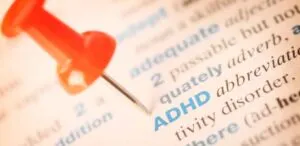Prolonged Grief Disorder
When feelings of sadness, rage, and grief interfere with your life and last for months or years after losing a loved one, you may be dealing with prolonged grief disorder. A normal reaction to losing a loved one is grief. The majority of people see a gradual decline in their grief symptoms. A tiny percentage of people, however, continue to experience great grief, and their symptoms are strong enough to interfere with their ability to live their lives normally. This is a defining feature of prolonged grief disorder. PGD is considered a disorder when these symptoms persist for at least 12 months after the loss.

What are the Symptoms of Prolonged Grief Disorder?
The symptoms of Prolonged Grief Disorder (PGD) include:
Intense longing and yearning for the deceased: People with PGD often feel a deep sense of emptiness and a constant need to be with the person who died.
Preoccupation with the loss: People with PGD may find it hard to think about anything else other than the person who has passed away.
Difficulty accepting the death: People with PGD may have trouble accepting that the person is really gone because they may believe that the death might have been avoided in some way.
Difficulty moving on with life: People with PGD may have trouble engaging in activities that they once enjoyed and may struggle to build new relationships.
Physical symptoms: PGD patients may develop physical signs and symptoms such as fatigue, changes in appetite and sleep patterns, and difficulty concentrating.
Emotional distress: People with PGD may experience feelings of anger, guilt, and hopelessness, and they may find it difficult to control their emotions.
Social isolation: People with PGD may distance themselves from friends and family and may find it difficult to maintain relationships.
Functional impairment: People with PGD may have difficulty functioning in their daily lives, including work, social, and familial relationships.

Why does prolonged grief disorder occur?
Prolonged Grief Disorder (PGD) can happen for a variety of reasons. Some of the factors that may contribute to the development of PGD include
The nature of the loss: PGD is more likely to occur after the death of a loved one who was close, such as a spouse, child, or parent, rather than a more distant acquaintance.
The circumstances of the death: PGD may be more likely to occur if the death is sudden, traumatic, or violent.
The person’s emotional and psychological state: People who have a history of depression, anxiety, or other emotional difficulties may be more likely to develop PGD.
The person’s coping mechanisms: People who have difficulty coping with stress or expressing their emotions may be more likely to develop PGD.
Lack of social support: People without a supportive network of loved ones may have a higher likelihood of experiencing PGD.
The cultural and societal context: Certain cultures and societies may not have the same understanding and support of grief and mourning, which can result in a lack of understanding of the process and difficulty in accepting the loss.
How is prolonged grief disorder diagnosed?
Prolonged Grief Disorder (PGD) is diagnosed based on the criteria outlined in the Diagnostics and Statistical Manual of Mental Disorders, 5th Edition. To be diagnosed with PGD, a person must meet the following criteria:
- Persistent and intense grief reactions that occur after the loss of a loved one.
- The presence of at least six of the above-mentioned symptoms.
- Symptoms must last for at least 12 months after the loss
- Symptoms cause significant impairment in the person’s ability to function in daily life, including work, social, and familial relationships.
A skilled mental health professional, such as a psychiatrist, psychologist, or licensed therapist, should only diagnose PGD after conducting a thorough examination that includes a medical and psychological evaluation and taking into account other possible causes of the symptoms.

What are the treatment options for Prolonged Grief Disorder?
There are several treatment options for Prolonged Grief Disorder (PGD), including:
- Cognitive-behavioral therapy (CBT): This therapy aims to help individuals identify and change negative patterns of thinking and behavior related to their loss.
- Complicated Grief Treatment (CGT): This is a form of therapy specifically designed for PGD, It is a time-limited, structured, and evidence-based treatment that aims to help the person to process their grief and find a way to move forward.
- Medications: Antidepressants may be prescribed to alleviate depression and anxiety symptoms often accompanying PGD.
- Supportive therapy: This type of therapy provides a secure and supportive environment where individuals can express their feelings and emotions related to the loss.
- Psychoeducation: This type of therapy helps individuals understand the normal process of grief and how to cope with the different stages of grief.
- Group therapy: Group therapy allows people who have gone through similar experiences to connect and receive support from each other.
How to Help a Friend with Prolonged Grief?
If you have a friend who is experiencing Prolonged Grief Disorder (PGD), there are several things you can do to help:
- Listen: Offer a listening ear and let your friend talk about their feelings and emotions without judging or interrupting.
- Encourage professional help: Suggest that your friend get help from a psychiatrist, therapist, or counselor who can provide specialized support and treatment
- Be patient: Recovery from PGD can take time, so be patient and understanding.
- Offer support: Let your friends know that you are there for them and offer to help with practical tasks or provide emotional support.
- Help them with their daily routine: Offer to help with chores or other tasks that may be difficult for them to do on their own.
- Help them to remember the good times: Share happy memories of the person who died and encourage them to look at pictures and other mementos.
- Help them to find new hobbies: Suggest new hobbies or activities that your friend may enjoy and encourage them to try new things.
- Educate yourself: Learn more about PGD, its symptoms, and how to support your friend to understand better what they are going through.
- Encourage self-care: Guide your friends to take care of themselves, eat well, get enough sleep, and exercise.
- Be there for them: Let your friends know that you are there for them, no matter what, and that you care about their well-being.
Novus Beginning Psychiatry: Your Path to Health and Wellness Starts Here!
We understand that navigating the complexities of mental health can feel overwhelming, but you don’t have to face it alone. At Novus Beginning Psychiatry, we’re here to support you every step of the way. Whether you’re seeking therapy, medication, or a combination of both, our compassionate professionals are dedicated to helping you find the path to a happier, healthier life.
Our highly skilled psychiatrists are experienced in a wide range of mental health conditions, including anxiety, depression, bipolar disorder, OCD, PTSD, ADHD, autism, and more. We offer evidence-based therapies that have been proven effective in helping individuals overcome their challenges. From cognitive-behavioral therapy (CBT) to couples/family therapy, we utilize the most up-to-date techniques to empower you on your healing journey.
We also recognize that medication is vital in managing certain psychological health conditions. Our team includes Dr. Nibras, who is a board-certified psychiatrist well-versed in medication management. He works closely with you to develop a comprehensive treatment plan, as we believe in the power of personalized care.
So, take the first step towards a brighter future. Contact us today to schedule an appointment. Our friendly staff is ready to assist you in finding a convenient time to meet with our dedicated professionals. Call (832)856-4718 and let us help you take charge of your mental well-being.
Medication Management For Psychiatric Wellness
At Novus Beginning Psychiatry, we’re dedicated to helping you unlock the power of effective medication management. Our team of psychiatrists has years of experience and understands the importance of finding the right balance for your mental health journey. We offer personalized and compassionate care, creating medication plans that are tailored to your unique needs. Our understanding of psychopharmacology allows us to provide the most advanced and evidence-based treatments available.
Our goal is to help you by providing the right medications to enhance your therapy outcomes, reduce your symptoms, and improve your overall well-being. We want to be your trusted partner on the path to a brighter future. Please don’t hesitate to contact us at Novus Beginning Psychiatry to experience the transformative effects of our comprehensive medication management approach.
Who is Dr. Nibras?
Dr. Sohail Nibras is a double board-certified psychiatrist in child, adolescent, and adult psychiatry. He completed his education at Saint Louis University and the American University of Integrative Science. He excels in treatments based on psychiatric care and therapeutic sessions and has experience treating dual psychiatric and substance use disorders. He is an assistant professor at the Menninger Department of Psychiatry and Behavioral Sciences at Baylor College of Medicine in Houston, Texas. He serves as an attending psychiatrist at Texas Children’s Hospital. He trains future psychiatrists and engages in scholarly research projects.
Visit us
Come and visit us at one of our locations in person or meet us via telepsychiatry/online!
We’re here to help in Texas, ready to meet you in person. If you’re unable to make it in person, don’t worry, we’re also available online, so you can meet us easily from the comfort of your own home. Whether you prefer to see us face-to-face or connect with us online, we’re here to assist you every step of the way.
Address in Sugar Land
120 Eldridge Rd Suite D, Sugar Land, TX 77478
Address in Katy
23410 Grand Reserve Drive, Ste. 401 & 402 Katy, Texas 77494



